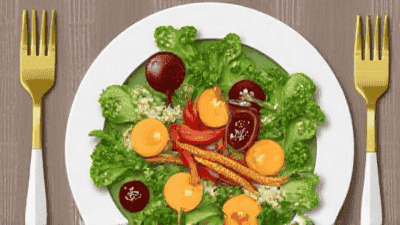Bone Health: Food Sources for Calcium and Vitamin D
Maintaining strong bones is vital for overall health and well-being. As we age, the importance of bone health becomes even more pronounced, with a greater risk of bone-related issues such as osteoporosis and fractures.

Maintaining strong bones is vital for overall health and well-being. As we age, the importance of bone health becomes even more pronounced, with a greater risk of bone-related issues such as osteoporosis and fractures. Two key nutrients that play a crucial role in maintaining bone health are calcium and vitamin D.
Understanding Bone Health
The Importance of Bone Health
Bones provide structure to our bodies, protect vital organs, and store essential minerals like calcium and phosphorus. Optimal bone health is crucial for various functions, including mobility and balance. As we age, bone density tends to decrease, making bones more susceptible to fractures and conditions like osteoporosis. Osteoporosis is a silent disease that weakens bones, leading to an increased risk of breaks, particularly in the hip, spine, and wrist.
The Role of Calcium
Calcium is an essential mineral that is vital for various physiological functions:
Bone Structure and Strength: Approximately 99% of the body's calcium is stored in the bones and teeth, providing them with strength and structure.
Muscle Function: Calcium is necessary for muscle contraction, allowing our muscles to work effectively.
Nerve Transmission: It plays a critical role in transmitting signals between nerve cells, facilitating communication throughout the body.
Blood Clotting: Calcium is vital for the clotting process, helping to prevent excessive bleeding from injuries.
The Role of Vitamin D
Vitamin D is a fat-soluble vitamin that is crucial for calcium absorption and bone health:
Calcium Absorption: Vitamin D enhances the intestinal absorption of calcium, ensuring that enough calcium is available for bone formation.
Bone Remodeling: It plays a role in bone remodeling, which is the ongoing process of replacing old bone tissue with new.
Immune Function: Vitamin D also contributes to immune system health, helping to fend off infections.
Food Sources of Calcium

Achieving adequate calcium intake through diet is essential for maintaining bone health. Here are some excellent food sources of calcium:
1. Dairy Products
Dairy products are among the richest sources of calcium. Options include:
Milk: Both whole and low-fat milk contain high levels of calcium. A cup of milk provides about 300 mg of calcium.
Yogurt: Greek yogurt is also an excellent source, with one serving providing about 200-400 mg of calcium depending on the brand.
Cheese: Cheddar, mozzarella, and Swiss cheeses are rich in calcium. An ounce of cheese can provide approximately 200 mg of calcium.
2. Leafy Green Vegetables
Vegetables can also be a great source of calcium, particularly:
Kale: One cup of cooked kale provides about 180 mg of calcium. It is not only rich in calcium but also packed with vitamins A and C.
Collard Greens: This leafy green offers around 270 mg of calcium per cooked cup, making it an excellent choice for bone health.
Turnip Greens: These provide about 200 mg of calcium per cup when cooked.
3. Fortified Foods
Many foods are fortified with calcium to improve dietary intake. Look for:
Fortified Cereals: Some breakfast cereals are fortified with calcium, offering anywhere from 100 to 1000 mg per serving.
Fortified Plant Milks: Almond milk, soy milk, and oat milk are often fortified with calcium, with an average of 300 mg per cup.
4. Fish
Certain fish are high in calcium as well, particularly those that are canned with bones, such as:
Sardines: One can of sardines (about 3.75 ounces) contains about 325 mg of calcium.
Salmon: Canned salmon also provides calcium, with around 180 mg per 3-ounce serving thanks to its edible bones.
5. Nuts and Seeds
Some nuts and seeds can contribute to your calcium intake:
Almonds: One ounce of almonds provides approximately 76 mg of calcium.
Chia Seeds: One ounce of chia seeds contains about 179 mg of calcium, making them a great addition to smoothies and yogurt.
6. Legumes
Legumes, particularly when cooked, can be a good source of calcium:
White Beans: One cup of cooked white beans contains about 161 mg of calcium.
Tofu: Calcium-set tofu can be an excellent source of calcium, providing about 253 mg per half-cup.
Food Sources of Vitamin D
In addition to calcium, vitamin D is essential for ensuring calcium is effectively absorbed in the body. Here are some food sources of vitamin D:
1. Fatty Fish
Fatty fish are among the best natural sources of vitamin D. Examples include:
Salmon: A 3.5-ounce serving can provide up to 600 IU (International Units) of vitamin D.
Mackerel: This fish also contains a significant amount of vitamin D, with around 360 IU per 3.5-ounce serving.
2. Cod Liver Oil
While not often consumed directly, cod liver oil is an excellent source of vitamin D. Just one tablespoon can provide about 1,360 IU, well above the recommended daily intake.
3. Fortified Foods
Many products are fortified with vitamin D to help people meet their needs. Examples include:
Fortified Milk: Most cow’s milk is fortified with vitamin D, providing around 100 IU per cup.
Fortified Orange Juice: Many brands fortify their juice with vitamin D, usually offering about 100 IU per serving.
Fortified Cereals: Like calcium, cereals can also be fortified with vitamin D, providing around 40 to 100 IU per serving.
4. Egg Yolks
Eggs are a convenient source of vitamin D, with one large egg yolk providing about 37 IU of vitamin D.
5. Mushrooms
Certain mushrooms exposed to ultraviolet light can also contain vitamin D. For instance, one cup of UV-exposed mushrooms can provide around 400 IU of vitamin D.
The Importance of a Balanced Diet

Achieving adequate calcium and vitamin D intake is crucial for bone health, but it is also essential to maintain a balanced diet that includes a variety of nutrients. Here are some key dietary considerations:
1. Vitamin K
Vitamin K plays a significant role in bone health by aiding in the regulation of calcium in the bones. Foods high in vitamin K include:
Leafy Greens: Spinach, kale, and Swiss chard are excellent sources.
Cruciferous Vegetables: Broccoli and Brussels sprouts are also rich in vitamin K.
2. Magnesium
Magnesium supports calcium bioavailability in the body. Good sources include:
Nuts: Almonds and cashews provide good magnesium levels.
Whole Grains: Brown rice and quinoa are beneficial options.
3. Protein
Adequate protein intake is also vital for bone health, as it supports bone structure and function. Sources of protein include:
Lean Meats: Chicken, turkey, and lean cuts of beef.
Legumes: Lentils, beans, and chickpeas offer plant-based protein.
Dairy Products: Yogurt and cheese provide both calcium and protein.
Combining Calcium and Vitamin D for Optimal Bone Health
To effectively support bone health, it is crucial to combine calcium and vitamin D intake. Here are some tips for doing so:
1. Pair Calcium-Rich Foods with Vitamin D Sources
When planning meals, combine sources of calcium with foods rich in vitamin D. For example:
Enjoy a spinach salad topped with sardines and a dressing made with fortified olive oil.
Make a yogurt parfait with calcium-fortified yogurt and UV-exposed mushrooms in your breakfast smoothie.
2. Consider Supplements if Necessary
For individuals who struggle to meet their calcium and vitamin D requirements through diet alone, supplements may be necessary. Consulting with a healthcare professional can help determine if supplementation is appropriate for your needs.
3. Get Sunlight Exposure
The body can produce vitamin D when exposed to sunlight. Aim for about 15-30 minutes of sun exposure several times a week, depending on skin tone and geographic location. However, always use sun protection to prevent skin damage.
Lifestyle Factors That Support Bone Health

In addition to dietary changes, several lifestyle factors can contribute to better bone health:
1. Regular Exercise
Exercise plays a crucial role in maintaining bone health. Weight-bearing exercises, such as walking, running, and strength training, help strengthen bones and stimulate bone density. Aim for at least 150 minutes of moderate aerobic activity each week, along with muscle-strengthening activities on two or more days.
2. Avoid Smoking and Limit Alcohol
Smoking negatively impacts bone health, as it can decrease bone density. Additionally, excessive alcohol intake can interfere with calcium absorption, increasing the risk of fractures. Limiting alcohol consumption to moderate levels (up to one drink per day for women and two drinks per day for men) is advisable.
3. Manage Stress
Chronic stress can impact overall health, including bone health. Engaging in stress-reducing activities like yoga, meditation, or spending time outdoors can be beneficial.
4. Regular Health Check-Ups
Routine health check-ups can help detect any potential issues related to bone health. It's essential to discuss calcium and vitamin D needs with your healthcare provider, especially as you age or if you have risk factors for osteoporosis.
Delicious Calcium and Vitamin D-Rich Recipes
Incorporating calcium and vitamin D into your meals doesn't have to be complicated. Here are some tasty recipes to help you boost your intake of these essential nutrients.
1. Creamy Spinach and Cheese Stuffed Chicken Breast
This delicious chicken dish is packed with calcium from cheese and spinach.
Ingredients:
- 4 boneless, skinless chicken breasts
- 1 cup fresh spinach, chopped
- 1 cup ricotta cheese
- 1/2 cup mozzarella cheese, shredded
- 1/4 cup parmesan cheese, grated
- 2 cloves garlic, minced
- Salt and pepper to taste
- Olive oil for cooking
Instructions:
- Preheat the oven to 375°F (190°C).
- In a bowl, mix spinach, ricotta, mozzarella, parmesan, garlic, salt, and pepper.
- Cut a pocket into each chicken breast and stuff with the cheese and spinach mixture.
- Heat olive oil in a skillet over medium heat. Sear the stuffed chicken breasts for 3-4 minutes per side.
- Transfer to the oven and bake for 20-25 minutes or until cooked through.
2. Salmon and Asparagus Foil Packets
This easy-to-make dish is loaded with omega-3 fatty acids and provides a good amount of vitamin D.
Ingredients:
- 2 salmon fillets
- 1 bunch asparagus, trimmed
- 1 tablespoon olive oil
- Juice of 1 lemon
- Salt and pepper to taste
- Lemon slices for garnish
Instructions:
- Preheat the grill or oven to 375°F (190°C).
- Lay out aluminum foil sheets and place salmon fillets and asparagus in the center of each.
- Drizzle with olive oil, lemon juice, and season with salt and pepper. Top with lemon slices.
- Fold the foil to create sealed packets and cook on the grill or bake for 15-20 minutes.
3. Fortified Oatmeal with Berries
Start your day with a warm bowl of oatmeal that's rich in fiber and packed with calcium and vitamin D.
Ingredients:
- 1 cup fortified oatmeal
- 2 cups almond milk (fortified with calcium and vitamin D)
- 1/2 cup mixed berries (blueberries, strawberries, raspberries)
- 1 tablespoon honey or maple syrup (optional)
- 1 tablespoon chia seeds (optional)
Instructions:
- In a saucepan, combine oatmeal and almond milk. Bring to a boil and then reduce heat to simmer for 5-7 minutes until creamy.
- Stir in mixed berries, honey or maple syrup, and chia seeds (if using). Serve hot.
4. Kale Salad with Lemon Vinaigrette and Almonds
This refreshing salad combines calcium-rich kale with healthy fats from almonds.
Ingredients:
- 4 cups kale, torn into bite-sized pieces
- 1/4 cup almonds, sliced
- Juice of 1 lemon
- 2 tablespoons olive oil
- Salt and pepper to taste
Instructions:
- In a bowl, whisk together lemon juice, olive oil, salt, and pepper.
- Pour the dressing over the kale and massage the leaves to soften.
- Top with sliced almonds before serving.
5. Chia Seed Pudding with Coconut Milk
This creamy and nutritious pudding is high in calcium and vitamin D, thanks to the chia seeds and fortified coconut milk.
Ingredients:
- 1/2 cup chia seeds
- 2 cups coconut milk (fortified with vitamin D)
- 2 tablespoons honey or maple syrup
- 1 teaspoon vanilla extract
- Fresh fruit for topping (mango, berries, or kiwi)
Instructions:
- In a bowl, whisk together chia seeds, coconut milk, honey or maple syrup, and vanilla extract.
- Cover and refrigerate for at least 4 hours or overnight to allow the chia seeds to expand and thicken.
- Serve chilled, topped with fresh fruit.
Conclusion
Maintaining strong bones through diet is crucial for overall health and well-being. Calcium and vitamin D are essential nutrients for promoting optimal bone health. By incorporating a variety of calcium-rich and vitamin D-rich foods into your meals, you can support bone strength and reduce the risk of osteoporosis and fractures.
In addition to focusing on nutrition, it is essential to adopt a holistic approach to bone health that includes regular exercise, maintaining a healthy weight, and managing stress. By prioritizing your bone health today, you can enjoy a more active and fulfilling life as you age.
Incorporate these tips into your daily routine and experiment with delicious recipes that support your bone health. Your bones are worth the effort, and a few dietary changes can lead to significant long-term benefits.




